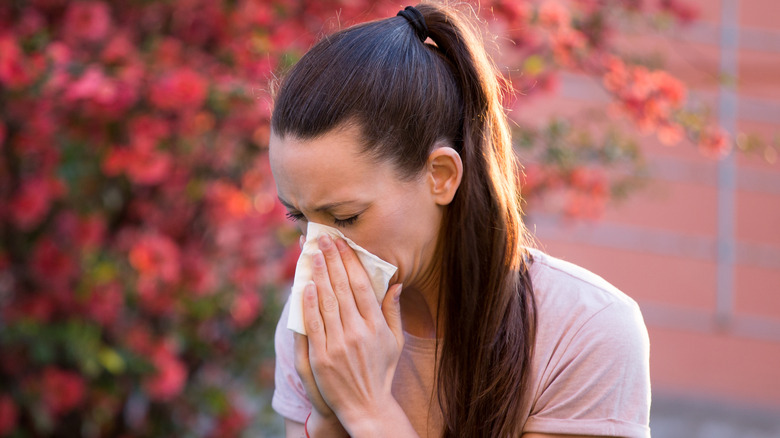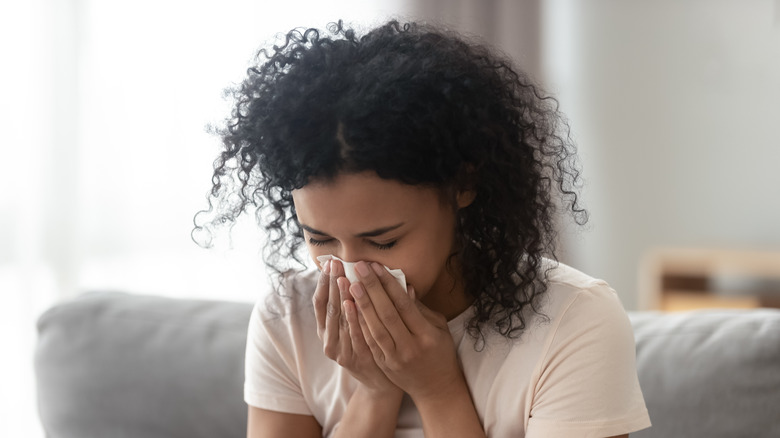What Is Hay Fever?
Hay fever is one of those terms that everyone has heard but nobody seems to know what exactly it means. Things get even more confusing when you bring in terms like "seasonal allergies" or just plain "allergies." What's the difference between all these things?
The short answer is that while the word "allergies" encompasses all kinds of allergic reactions, according to Kaiser Permanente, seasonal allergies and hay fever are the same thing. Hay fever is just a more colloquial term. Both refer to the way the body reacts when exposed to pollen, plant material, or certain animal components. These components include skin flakes, saliva, and dander, some of which only become issues in months when homes are shut up to conserve heat or cold.
Hay fever is also the kind of allergic reaction that centers in the nose and sinuses (via the Mayo Clinic). In fact, the symptoms are so focused on the nose that hay fever is often mistaken for the common cold. There are, however, important differences that set the two apart.
How to tell the difference between hay fever and the common cold
If you're trying to determine if someone is sick or if they just have hay fever — otherwise known as allergic rhinitis, according to the Mayo Clinic — there are three key components you have to look out for. Colds often present with a mild fever, while hay fever does not. Colds also have a short lifespan of three to seven days, while hay fever will last for as long as a person is exposed to the allergen. The most immediately noticeable difference, however, is that a cold will turn snot and mucus yellow while allergies will not.
This is due in part to how the body fights colds, which are caused by infections, compared to how they fight allergies. When someone encounters an allergen, their body produces something called immunoglobulin E, also known as IgE (according to the BBC). IgE then orders the body to produce histamines. WebMD describes histamines as the body's bouncers that are trying to kick troublesome things out of the body. They trigger the sneezing, itchy eyes, runny nose cough, and itchy throat or mouth that make allergies so frustrating.
All of the symptoms are designed to rid the body of the allergen. The process may leave you fatigued, but it is better than letting the allergen rest in your system where it can continue to cause aggravation. This is especially true of seasonal allergies brought on by plant pollen or pet dander, which you may be unable to avoid.


